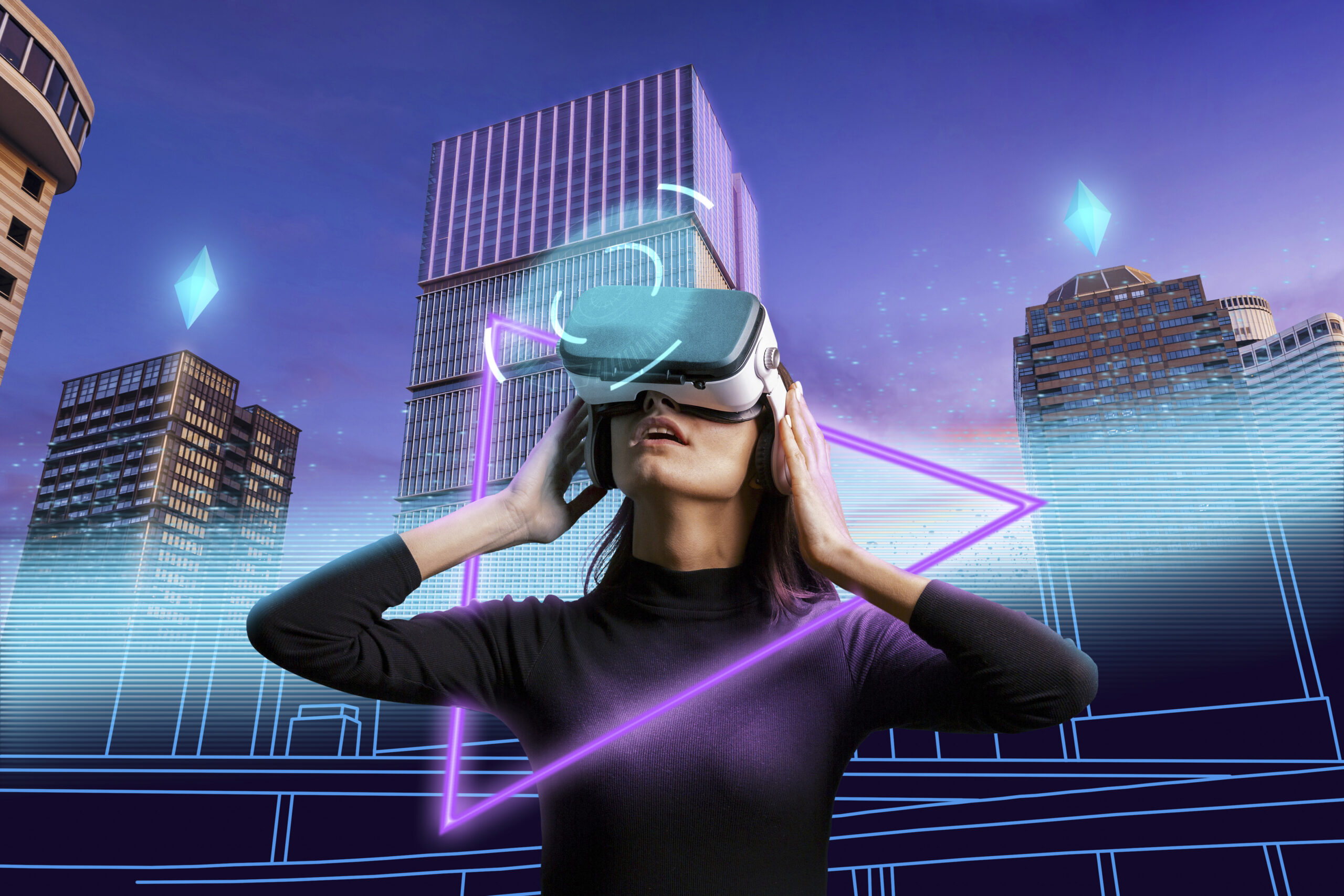In recent years, the concept of the metaverse has captured the imagination of technologists, futurists, and enthusiasts alike. Often depicted in science fiction novels and films, the metaverse represents a collective virtual space where users can interact, socialize, and engage in various activities, blurring the lines between the digital and physical worlds. As advancements in technology continue to accelerate, the metaverse is poised to revolutionize how we work, play, and connect in the digital age. In this article, we’ll explore the concept of the metaverse, its potential applications, and the implications for the future of virtual worlds.
What is the Metaverse?
The term “metaverse” was coined by science fiction author Neal Stephenson in his 1992 novel “Snow Crash,” where it was used to describe a collective virtual space that users could access via immersive virtual reality technology. Since then, the concept has evolved to encompass a broad range of interconnected virtual worlds, environments, and experiences, typically accessed through the internet or virtual reality devices.
At its core, the metaverse is a persistent, shared virtual space that transcends individual platforms and applications, enabling users to create, explore, and interact with digital environments and each other in real time. Think of it as a vast, interconnected network of virtual worlds, social spaces, and immersive experiences, where users can live, work, socialize, and play in ways that were previously unimaginable.
Applications of the Metaverse
The metaverse has the potential to revolutionize various aspects of our lives, from entertainment and gaming to education, commerce, and beyond. Some potential applications of the metaverse include:
- Social Interaction: In the metaverse, users can interact with friends, family, and strangers from around the world in immersive virtual environments, attending virtual events, exploring virtual spaces, and participating in shared experiences.
- Entertainment and Gaming: Virtual worlds and multiplayer games are already a significant part of the metaverse, offering immersive and interactive experiences for players to explore, compete, and collaborate in digital environments.
- Education and Training: The metaverse has the potential to transform education and training by providing immersive and interactive learning experiences, simulations, and virtual classrooms that enhance engagement and retention.
- Virtual Commerce: Virtual marketplaces and online stores within the metaverse enable users to buy, sell, and trade virtual goods, digital assets, and virtual real estate, creating new opportunities for commerce and entrepreneurship.
- Virtual Workspaces: Remote collaboration and telecommuting are becoming increasingly prevalent in the digital age, and the metaverse offers new possibilities for virtual workspaces, meetings, and collaboration tools that enable remote teams to work together more effectively.
Challenges and Considerations
While the metaverse holds immense promise, it also presents significant challenges and considerations, including:
- Privacy and Security: As users spend more time in virtual environments, concerns about privacy, data security, and digital identity become increasingly important, requiring robust safeguards and regulations to protect user rights and mitigate risks.
- Digital Inclusion: Access to the metaverse should be equitable and inclusive, ensuring that all individuals, regardless of socioeconomic status or geographic location, have the opportunity to participate and benefit from virtual experiences.
- Interoperability and Standards: The metaverse is comprised of a diverse array of platforms, technologies, and ecosystems, raising questions about interoperability, compatibility, and standards that enable seamless communication and interaction across virtual worlds.
- Ethical and Societal Implications: The metaverse raises ethical and societal questions related to identity, authenticity, and the blurring of virtual and physical realities, prompting discussions about the impact of virtual experiences on mental health, social dynamics, and cultural norms.
The metaverse represents a bold vision for the future of virtual worlds, offering boundless opportunities for exploration, creativity, and connection in the digital realm. As technology continues to evolve, the metaverse has the potential to transform how we live, work, and interact in profound and unprecedented ways. While the road ahead may be paved with challenges and uncertainties, the promise of the metaverse invites us to imagine new possibilities and shape a future where the boundaries between the physical and virtual worlds blur, and the potential for human expression and connection knows no bounds.

